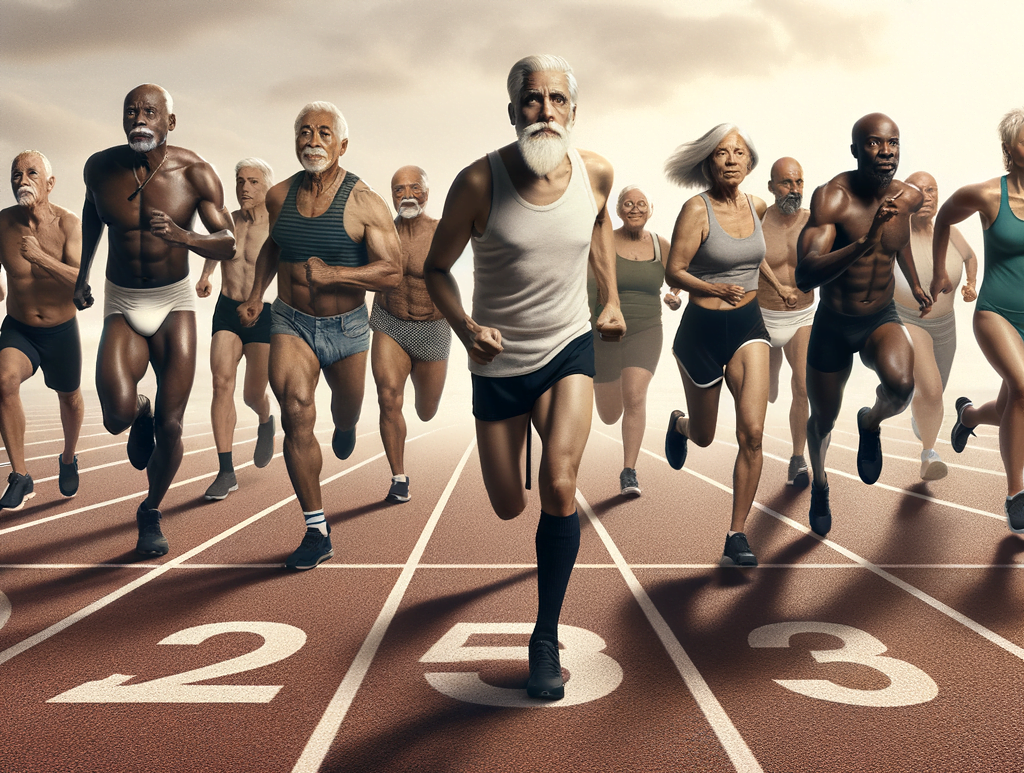
Why the Run to the Restroom as You Age?
Getting older can feel like being in a marathon where the toilet is the finish line. Don’t fret, it’s not just you lacing up your running shoes for the restroom dash. It’s a part of the process! The body goes through changes, including bladder quirks and potential issues. From estrogen downfall to a downsizing bladder and more, numerous reasons can explain why you might be visiting the bathroom more frequently.
Declining Estrogen
Remember that familiar hormone estrogen? Well, it’s not just there for the hot flashes and period party; it’s also the superstar supporting your bladder wall strength. And it’s just like any other diva – it dims down a bit as you reach menopause and beyond. The result? A weaker bladder wall and an increased need to heed nature’s call. Signs of this hormonal mutiny might include breast tenderness, frequent UTIs, and bone loss. So keep your doc in the loop on this one!
Pelvic Organ Prolapse
On some days, your pelvic organs might feel like they’re playing musical chairs, dropping their support and causing organ prolapse. Your bladder can sag, causing a sensation like you never fully empty out and increasing your bathroom visits. Good news though, strengthening your pelvic floor can potentially help – think of it like Kegels bootcamp but better!
Urinary Tract Infection (UTI)
Getting a UTI isn’t like winning a bingo game in your lifetime, but it’s somewhat common, particularly among women. The sneaky part is, as you age and go through menopause, traditional UTI symptoms might not show up. But you may experience more frequent urination.
Shrinking Bladder
You know how clothes seem to shrink over time? Something similar might be happening to your bladder. As you age, it may become less stretchy and more sensitive, making you feel like you’re ready to burst more often.
Constipation: More Common With Age
We all know it, pooping matters. And when it doesn’t happen as it should, constipation can rear its not-so-pretty head. This bowel blues can add extra pressure on your bladder, making it send you SOS signals frequently. Beware, frequent pee breaks could be a call for more fiber, hydration, exercise, and proper poop management!
Medications and Chronic Illnesses
Getting older might mean juggling multiple meds and chronic illness like a pro. Conditions like diabetes and heart disease, or medications, especially diuretics, can lead to increased urine production.
Steer Clear of Too Much Caffeine
Adore your morning java or nightly toddy? A heads-up: caffeine and alcohol can get your bladder working overtime. Limiting these, along with chocolate and soda can help reduce bathroom breaks.
Enlarged Prostate
Guys, getting older might make your prostate act like it went to pump itself up at the gym, making it tougher for the bladder to function normally and resulting in more frequent urination. Solutions might include medication or even surgery.
Watch Out for Type 2 Diabetes
A common symptom of Type 2 diabetes, which often develops in individuals over the age of 45, is frequent urination. So if you’re making one too many trips to the loo, a discussion with your doc might be in order.
As you age, it’s crucial to listen to your body – even if it’s literally taking the pee out of you. Talk to your healthcare provider if you’re noticing any changes. Looking out for these potential culprits can help you, and your bladder, stay in the race!
Key Points from This Article:
- Estrogen decline with age can weaken bladder walls leading to frequent urination.
- Pelvic organ prolapse might lead to a sensation of incomplete bladder emptying, making you go more often.
- As you age, typical UTI symptoms might not show up, but frequent urination might.
- Your bladder might become less stretchy and more sensitive over time, causing more frequent urination.
- Dealing with constipation through dietary changes can help manage bladder urgency.
- Chronic illnesses like diabetes and meds, especially diuretics, can increase urination frequency.
- Caffeine and alcohol consumption can lead to frequent urination as they increase your body’s tendency to excrete water.
- An enlarged prostate can make the bladder work harder, causing more frequent urination.
- Frequent urination might also be a symptom of Type 2 diabetes, common in individuals aged 45 and above.
Source Citation: https://www.huffpost.com/entry/frequent-urination-age_l_6570a580e4b0a10def8b2a11



